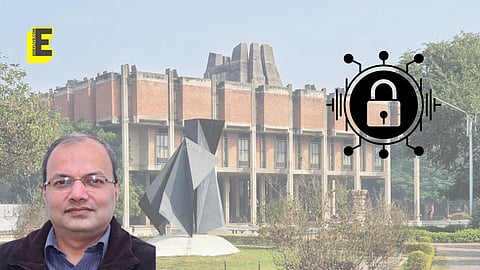

Cybersecurity engineering is crucial in our interconnected world. Rising cyberattacks, especially in countries like India with inadequate infrastructure, highlight the urgent need for experts.
Recent cyber incidents — ransomware attacks on small and cooperative banks’; UPI and IMPS systems, and breaches in manufacturing giants highlight the immediacy of the threat.
Reports revealing that India faces approximately 3,000 cyberattacks each week illuminate the dire need for skilled cybersecurity engineers capable of understanding, preventing, and mitigating these digital assaults.
Two areas within the cybersecurity realm are poised for exponential growth: Adversary Artificial Intelligence (AI) in cybersecurity, and API (Application Programming Interface) security. The integration of AI into sectors such as surveillance, autonomous vehicles, and drug discovery has introduced revolutionary changes, but it has also opened new avenues for adversarial AI.
This malicious form of AI can tamper with datasets and models, causing systems to execute unintended and potentially dangerous actions. Moreover, AI is increasingly deployed in cybersecurity tools for proactive threat detection and response.
The sophistication of adversarial AI means that these tools themselves can be compromised, making the need for experts who can counteract these threats paramount. The ubiquitous use of third-party APIs in-app, website and service development has streamlined business operations and also introduced significant vulnerabilities. Securing these APIs, particularly those in essential sectors like banking and telecommunications, is crucial.
The demand for skilled API security engineers, who can identify and rectify these weaknesses, is set to soar.
The rise of cybersecurity courses is a response to this growing threat. The C3iHub (Cybersecurity Technology Innovation Hub) at the Indian Institute of Technology (IIT) Kanpur launched an advanced certification programme in cyber security and cyber defence, followed by a blockchain programme. Recognising the immense demand, IIT Kanpur expanded to offer e-Master's and MTech/MS degrees in cybersecurity.
Their special skilling programme, which is free for Scheduled Castes/Scheduled Tribes (SC/ST) participants, has trained over 10,000 individuals, and they aim to train 2.5 lakh students nationwide in the coming years.
While a career in cybersecurity offers many advantages such as learning cyber hygiene, best practices, and organisational security protocols — it also presents significant challenges. The field demands a strong ethical foundation to prevent the misuse of knowledge. Emerging cybersecurity engineers will face hurdles like managing vast amounts of data and the need for advanced AI/ML tools to process this data in real time.
Additionally, the lack of high-end resources in many organisations limits their capacity to protect themselves. This surely needs improvement, and more government/private funding would be beneficial. As cyber threats evolve, so must our strategies and the expertise of those defending against these threats. Cybersecurity engineering is essential for a secure digital future.
(Prof Manindra Agrawal, Director of IIT Kanpur is the author of this piece. Views expressed are his own.)
